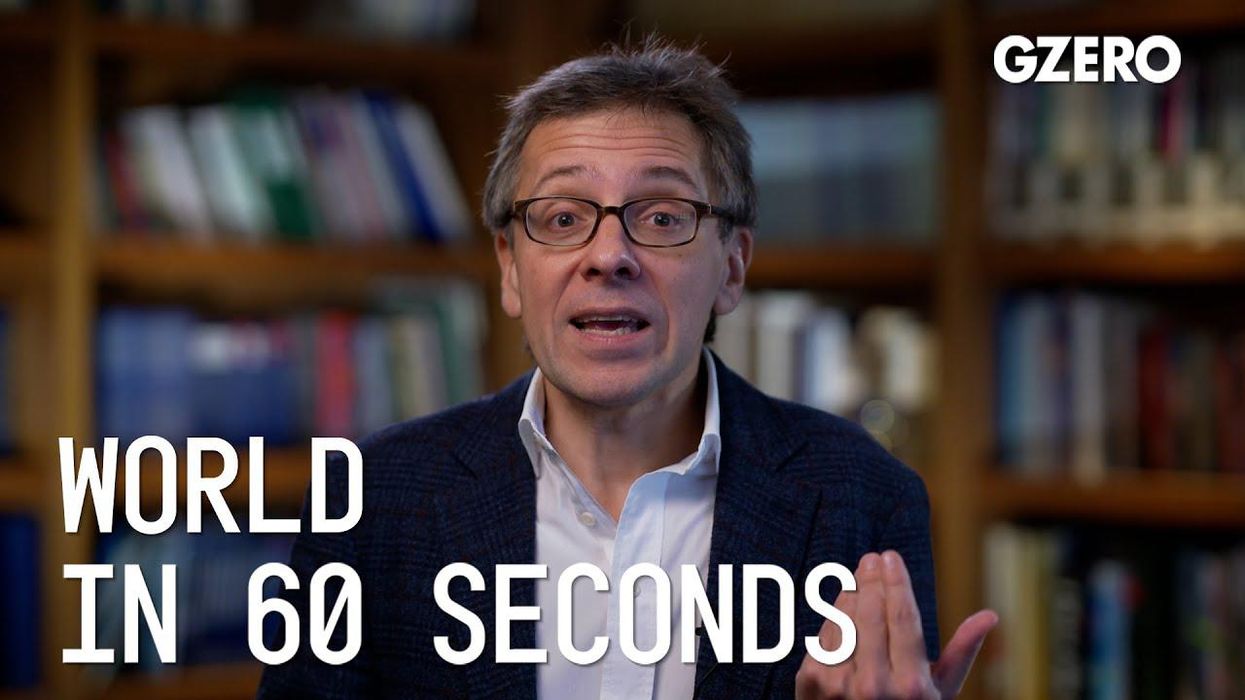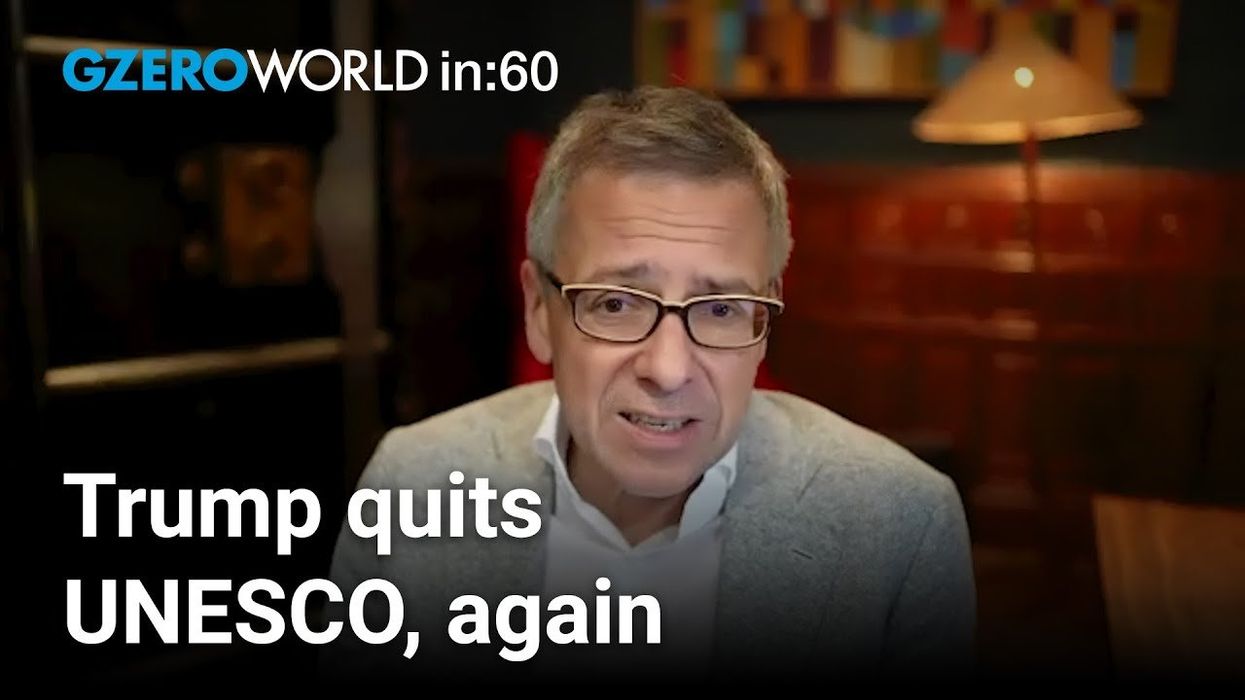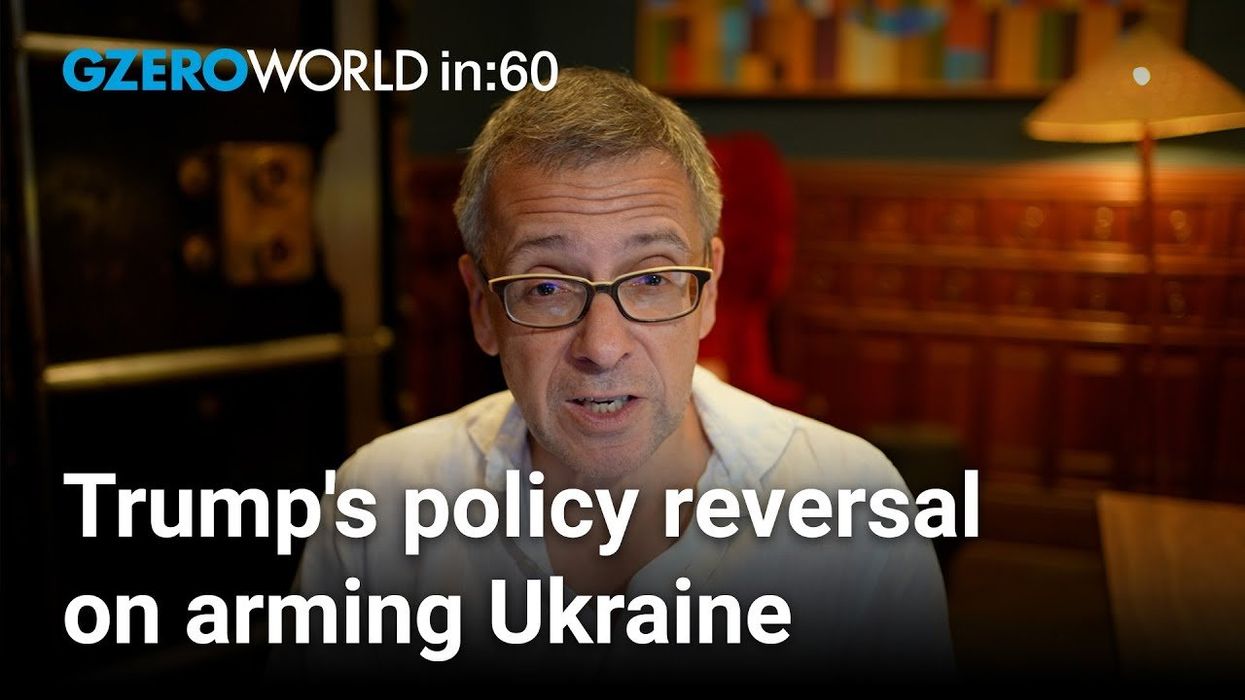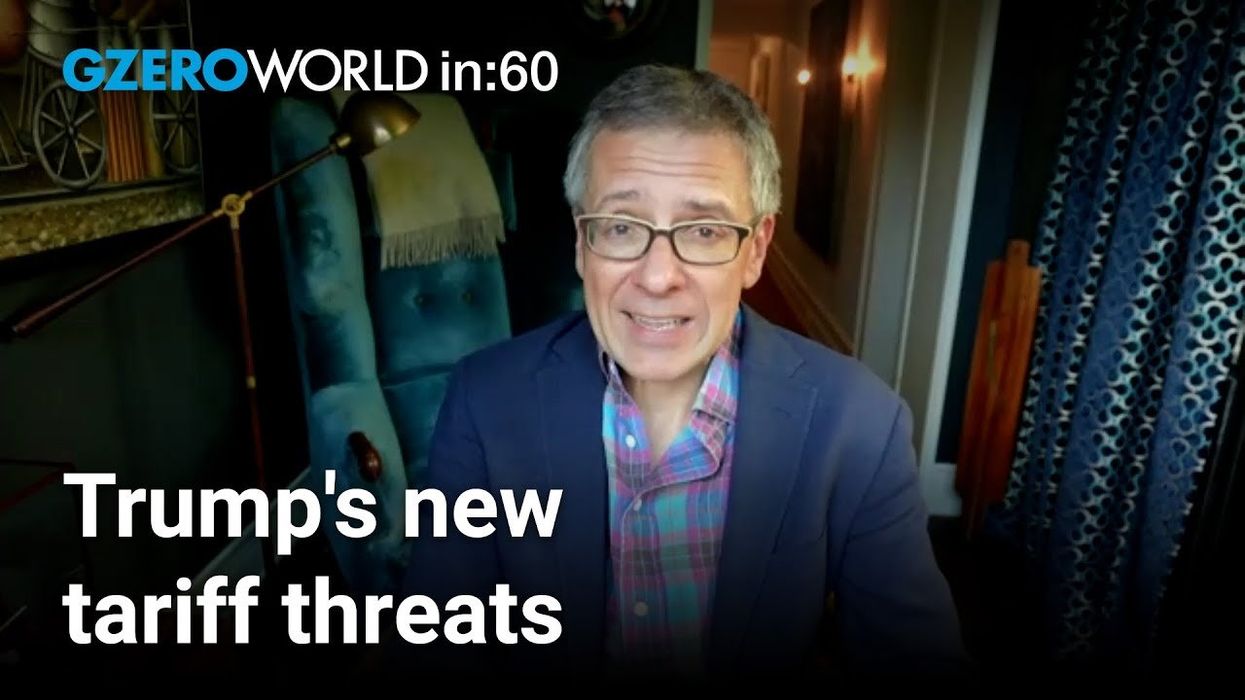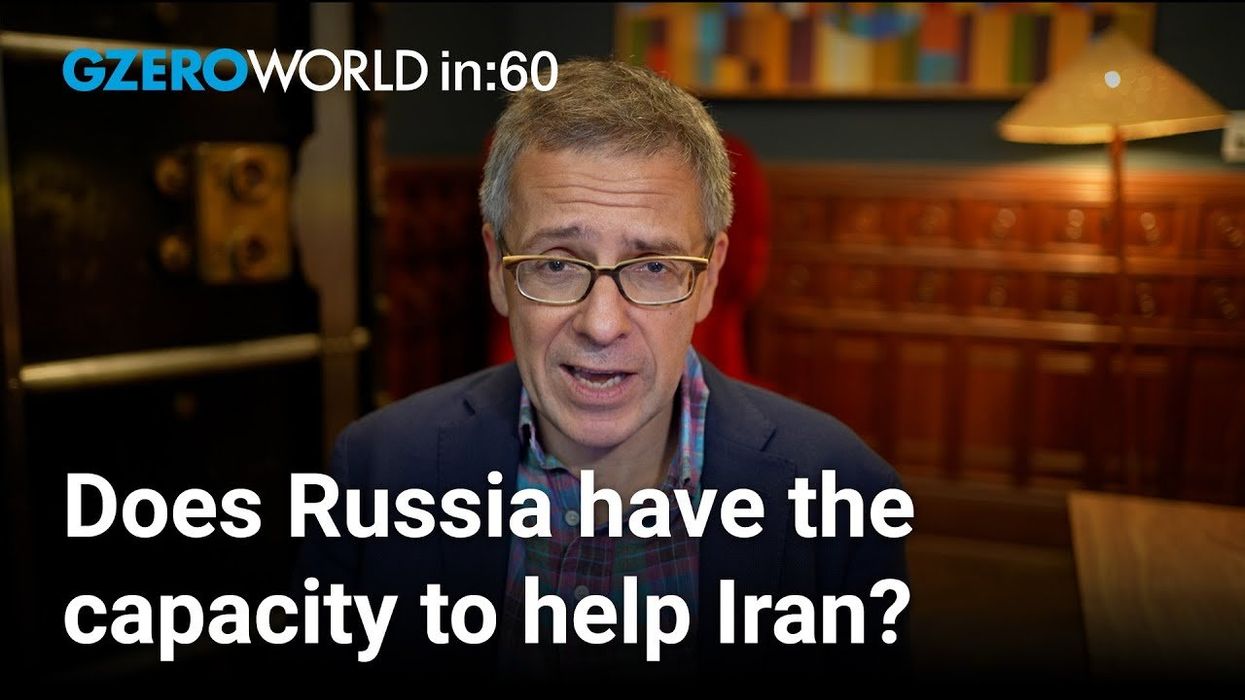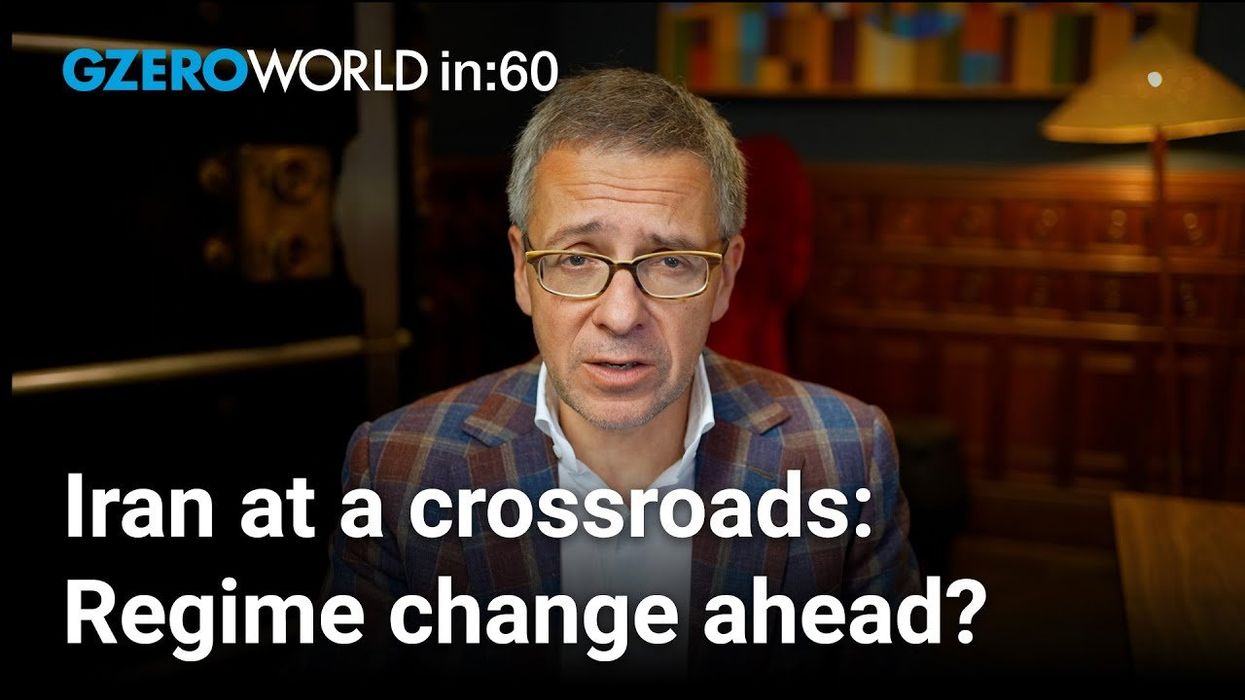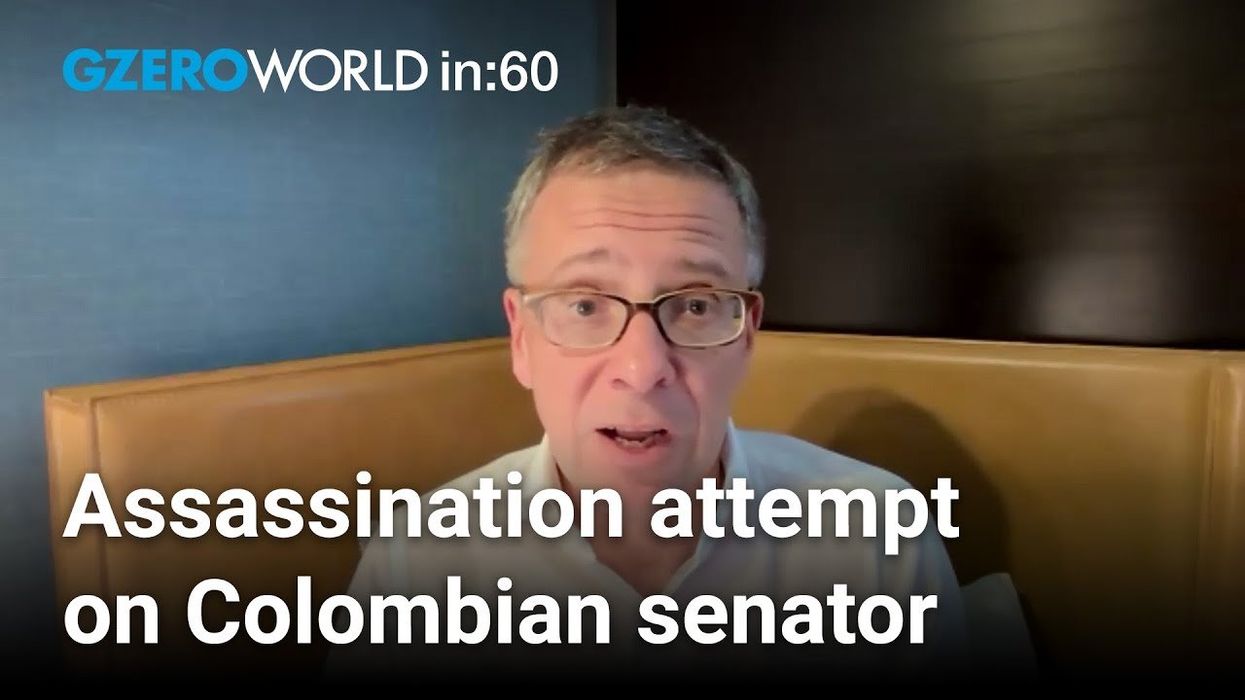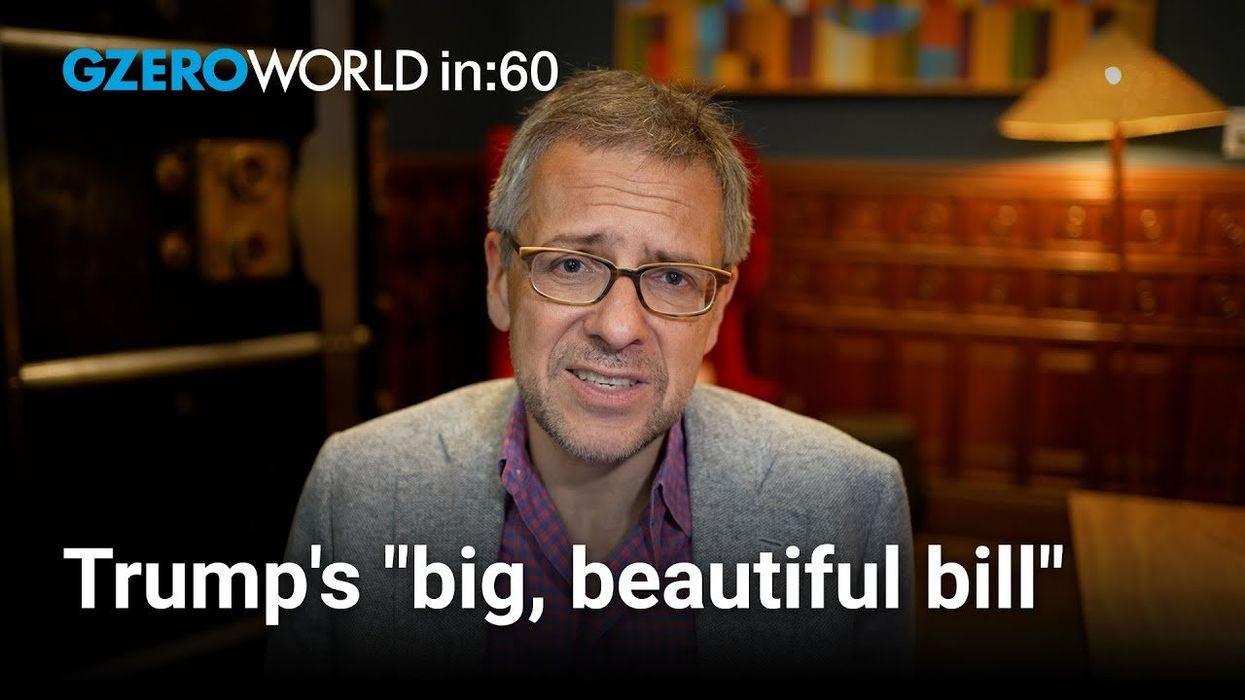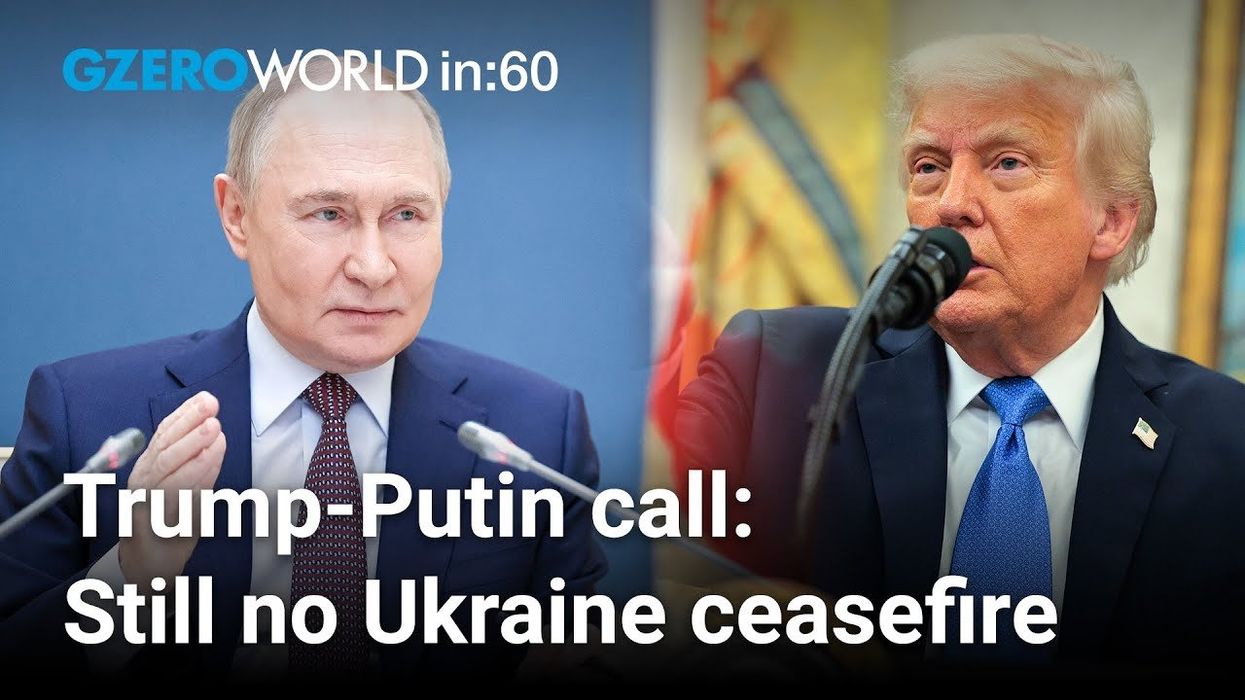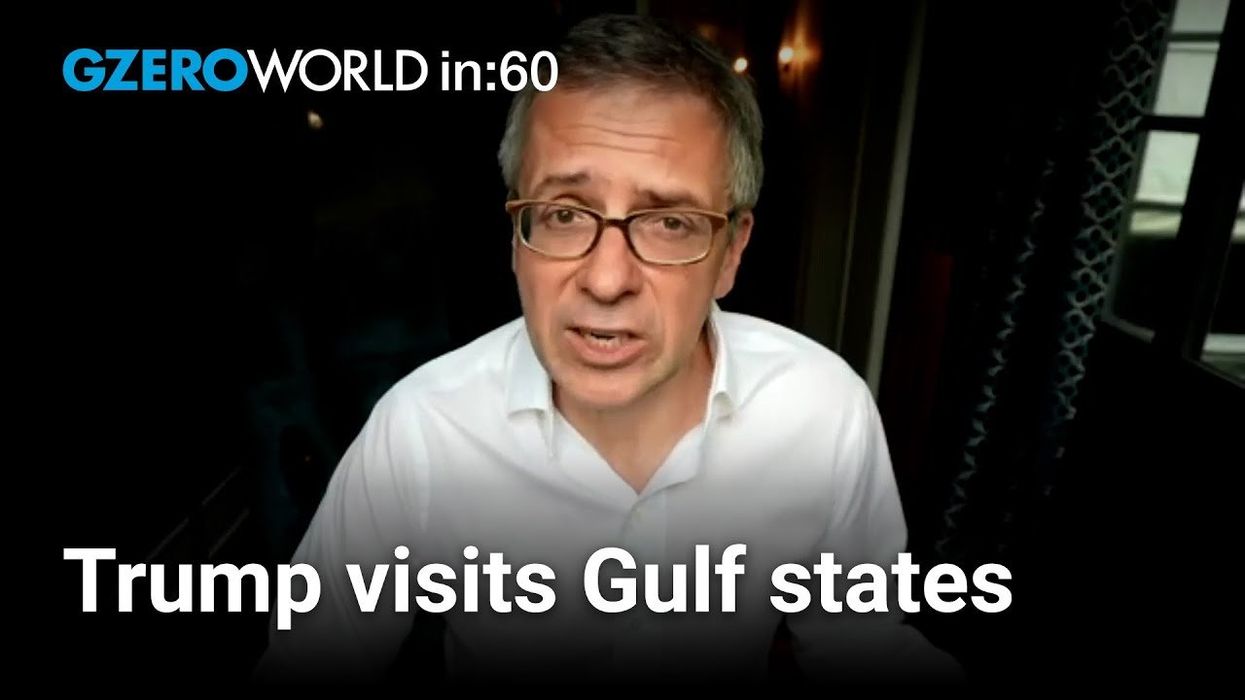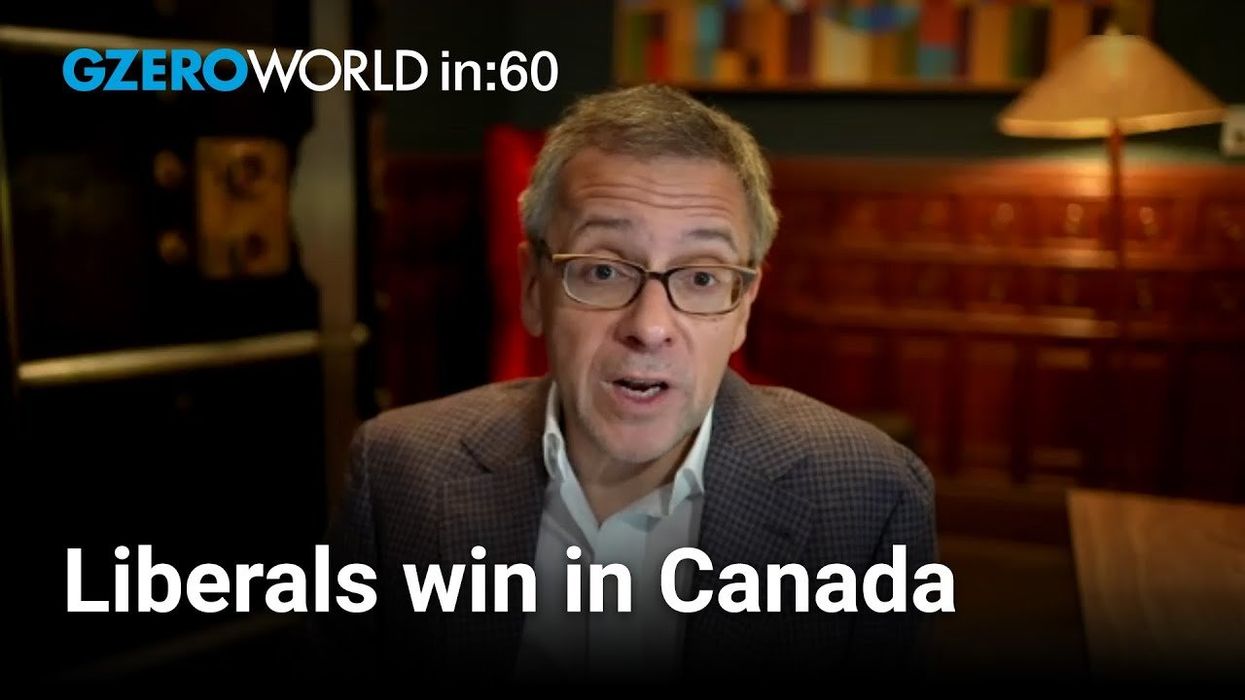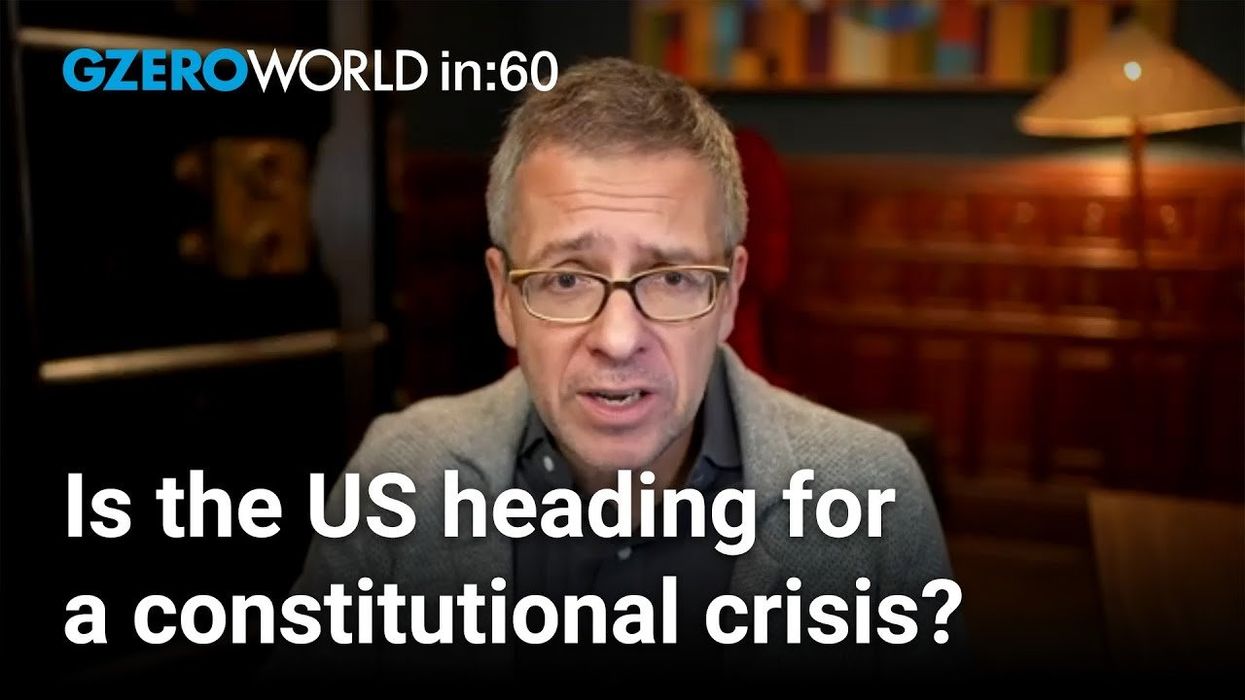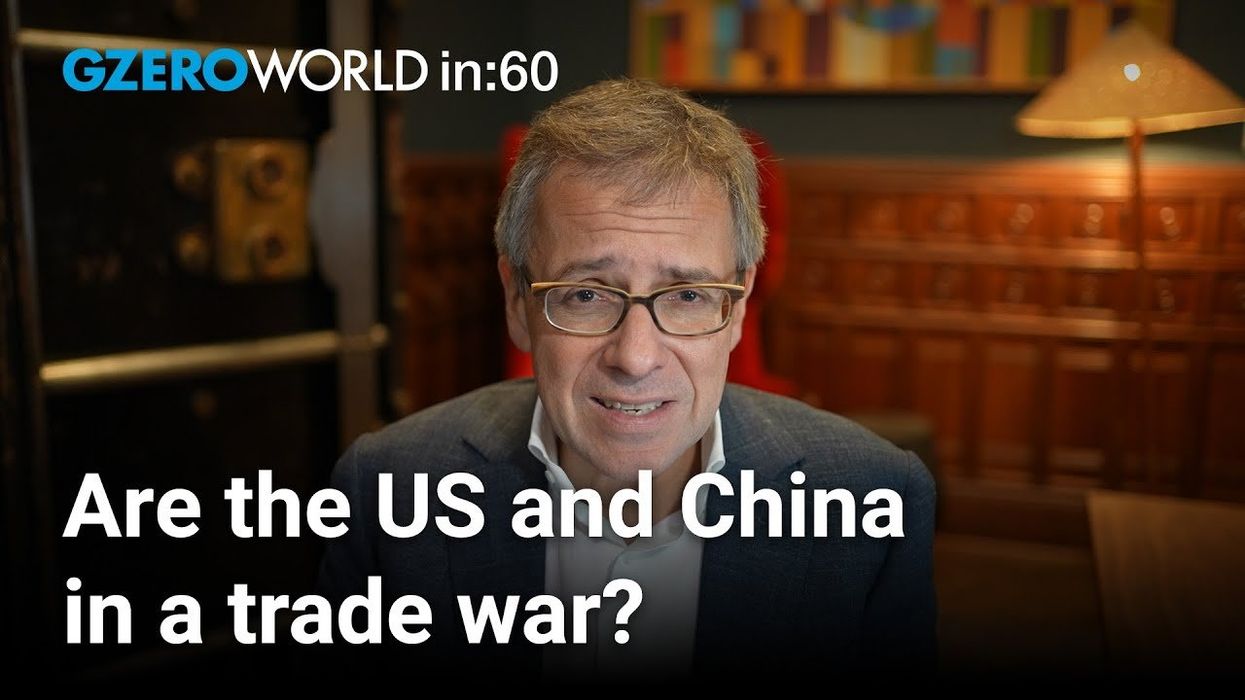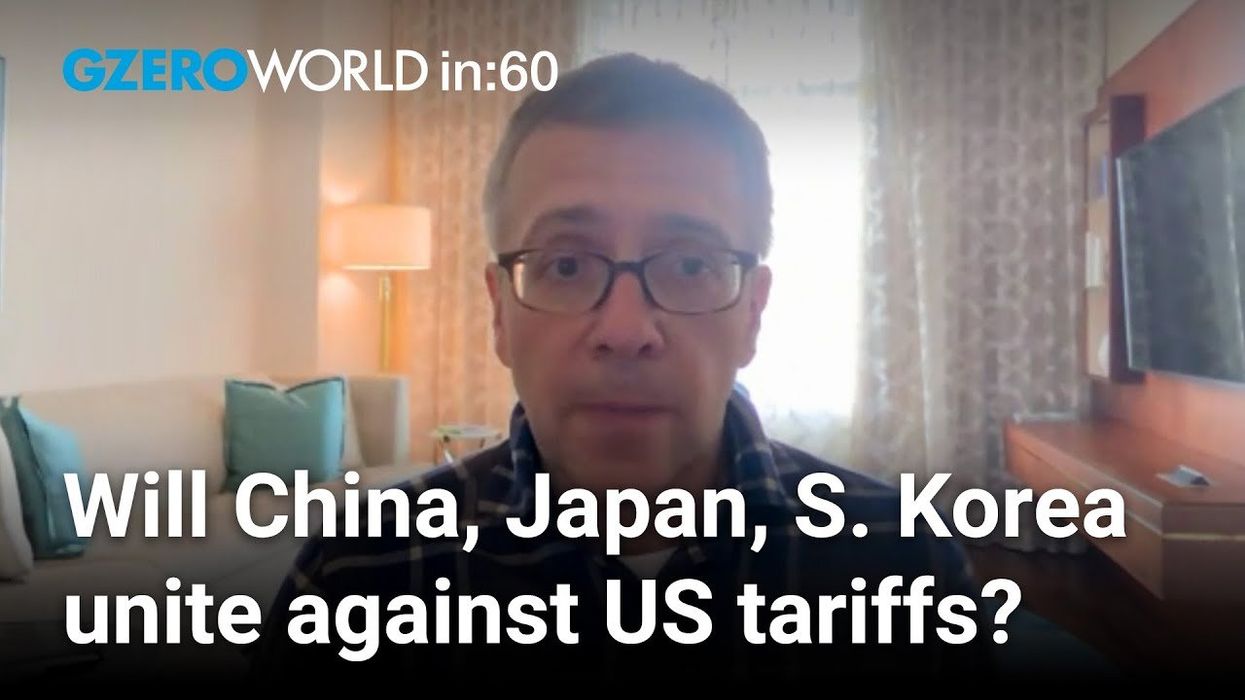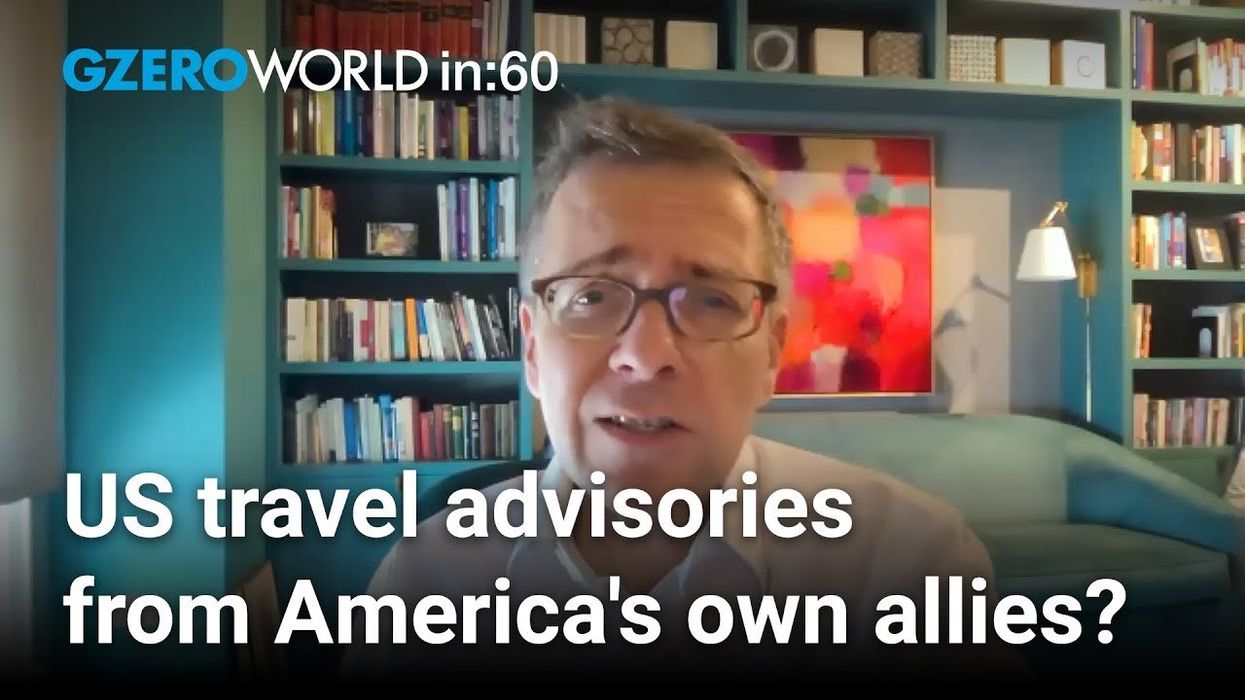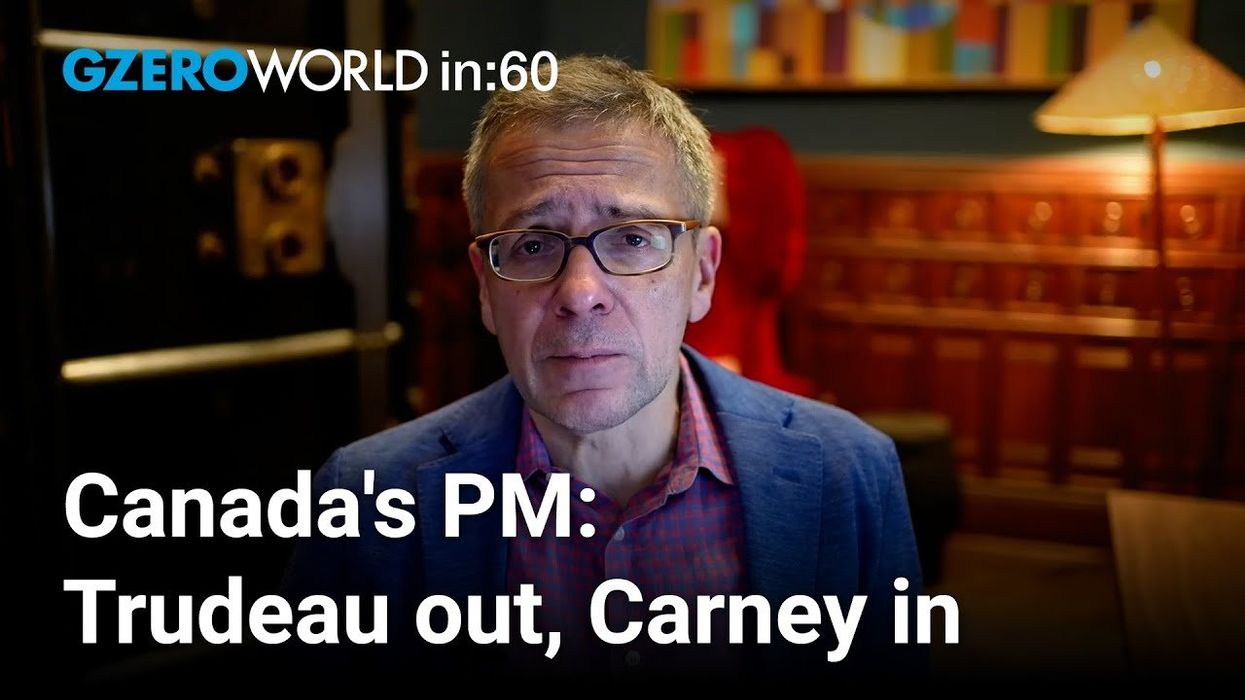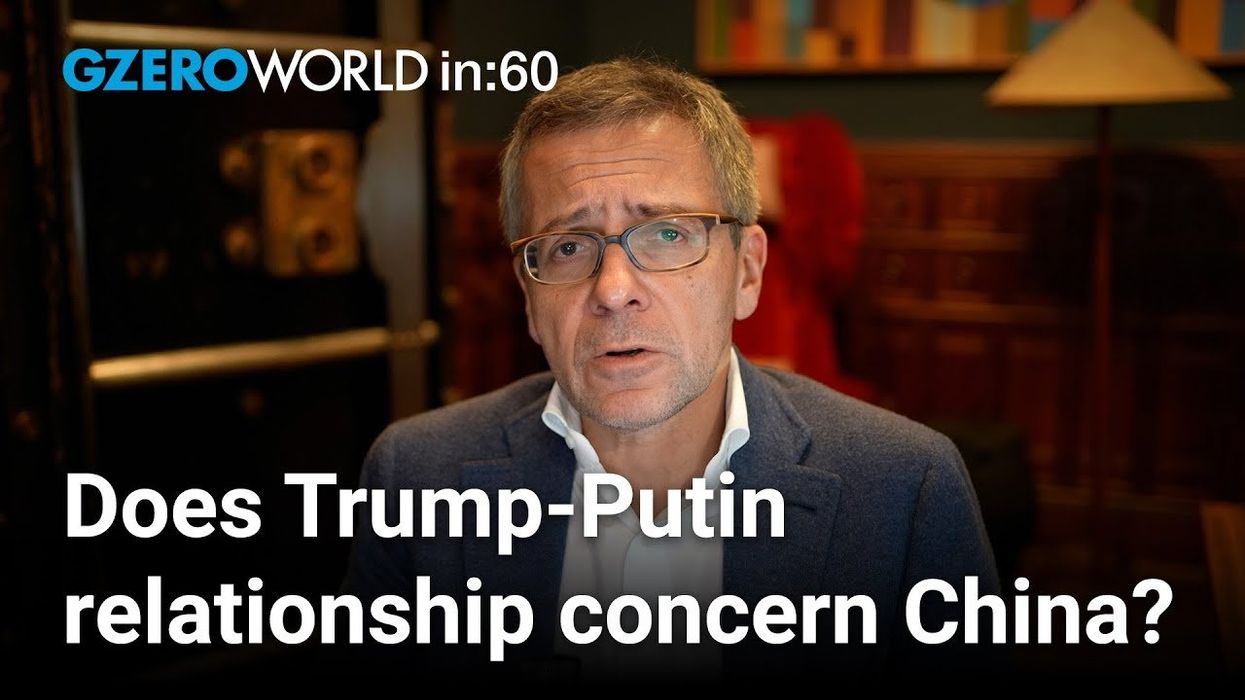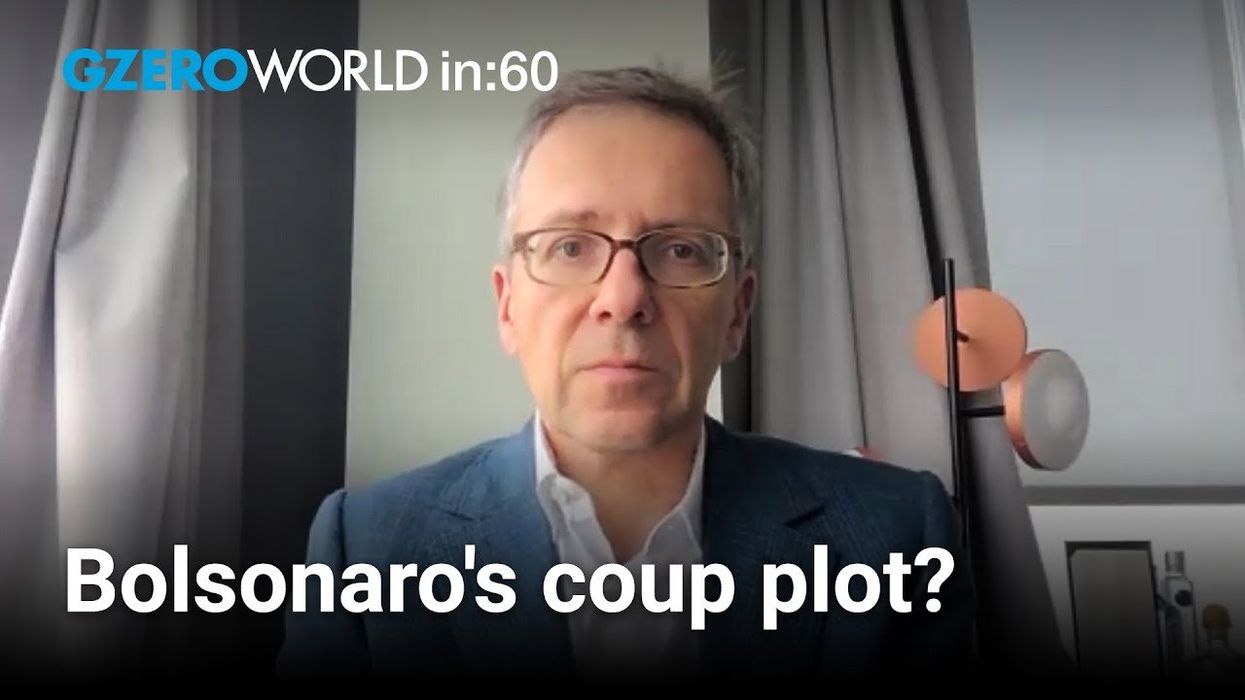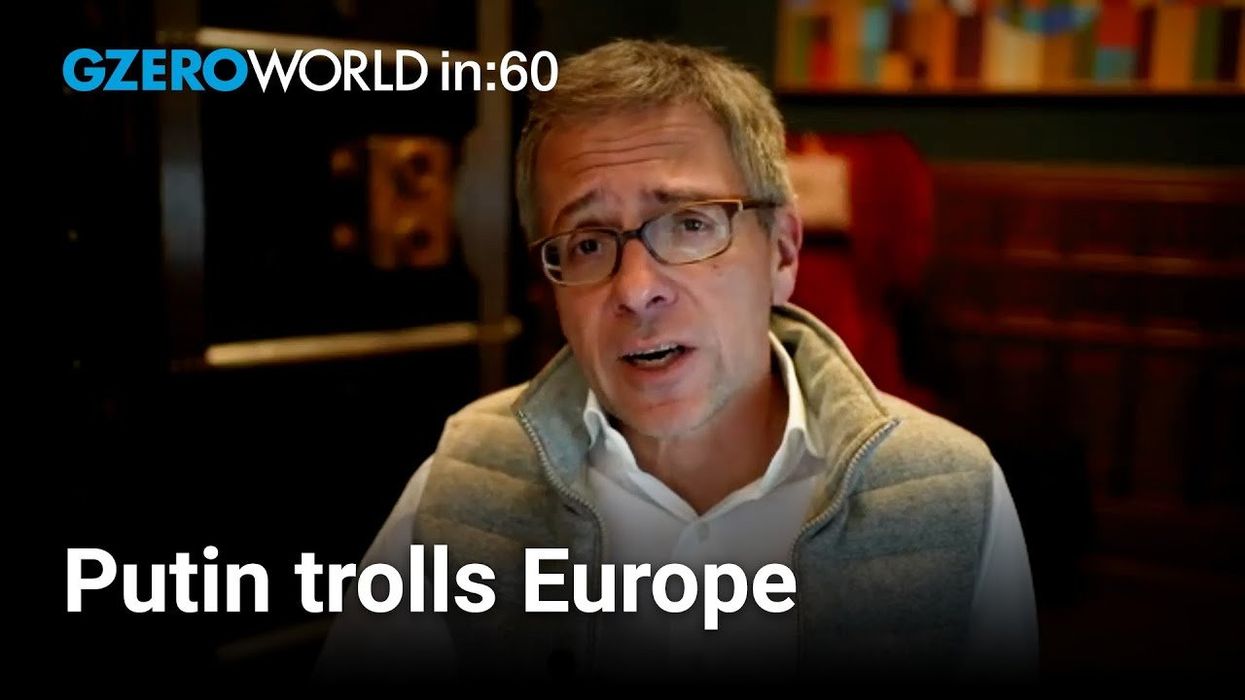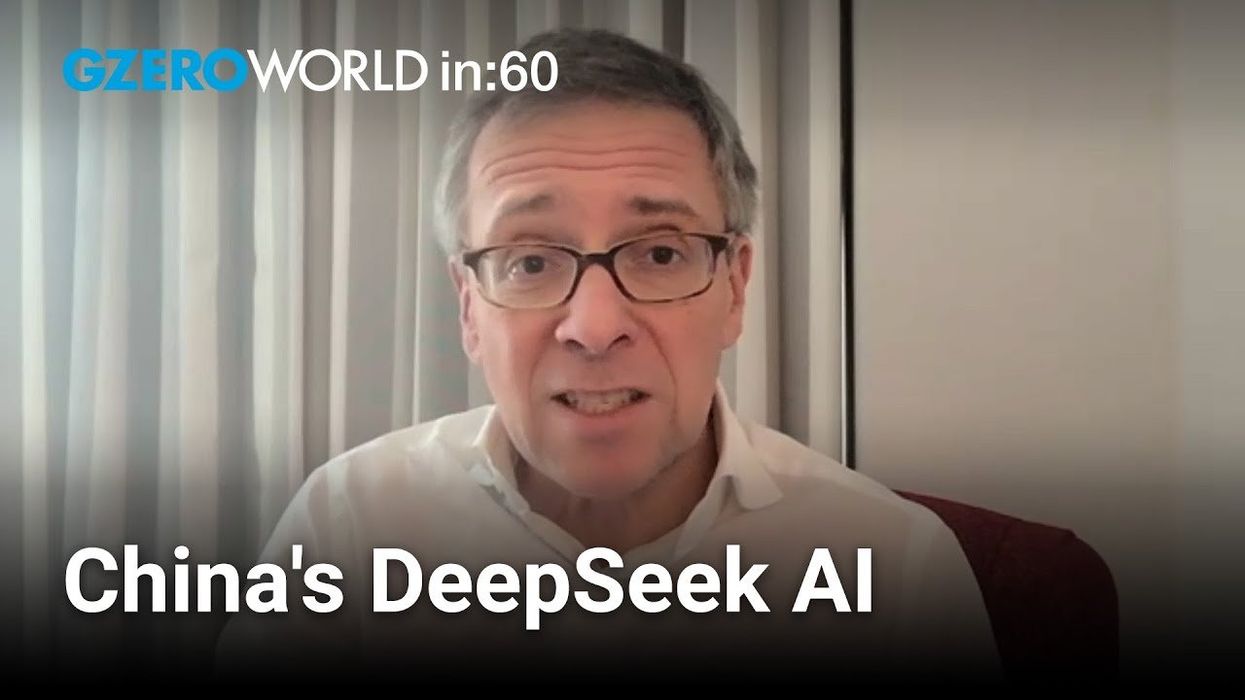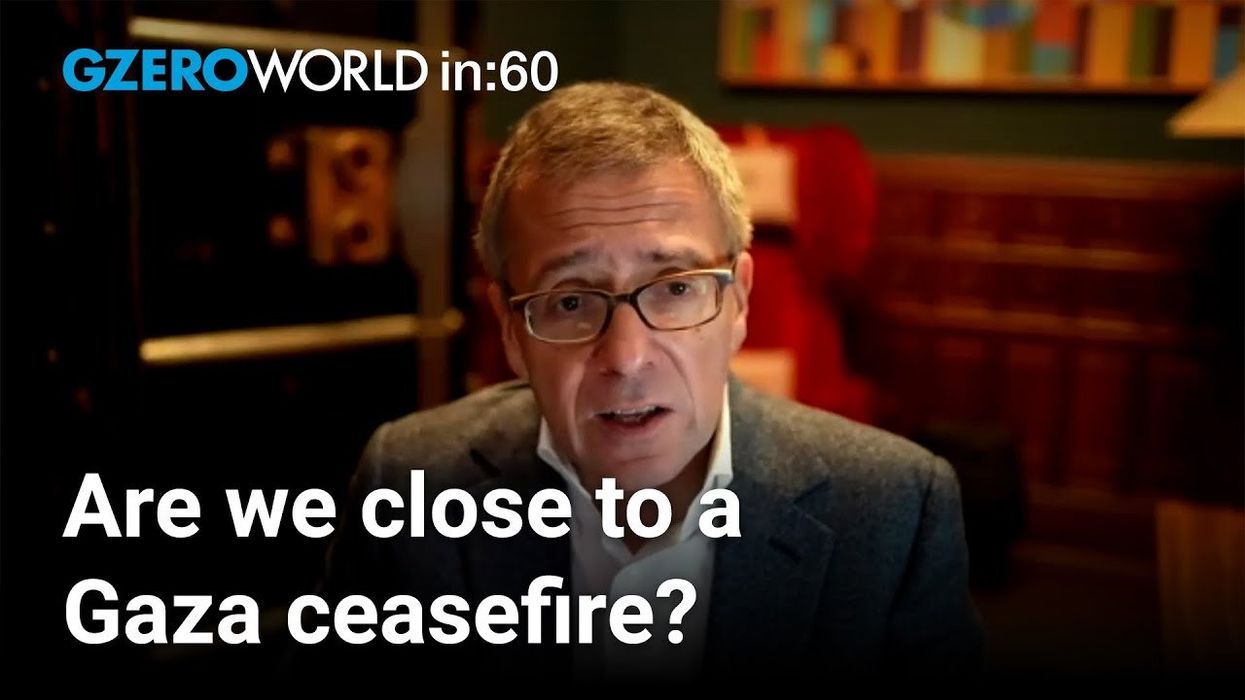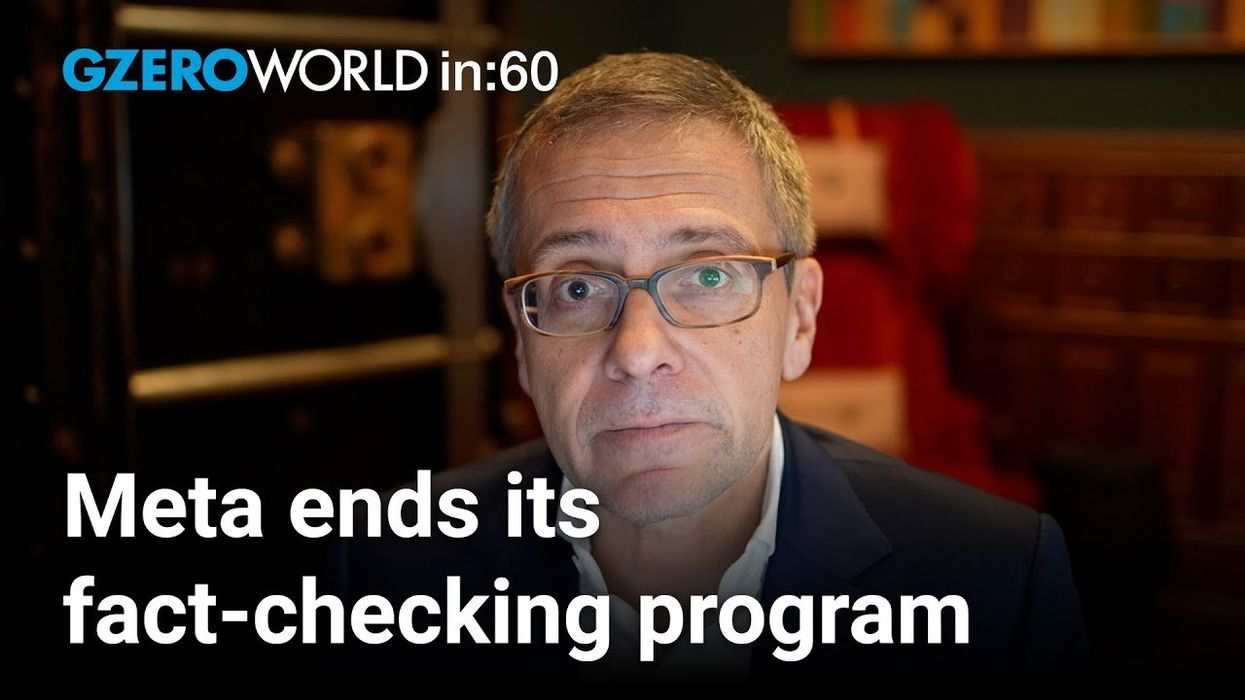VIDEOSGZERO World with Ian BremmerQuick TakePUPPET REGIMEIan ExplainsGZERO ReportsAsk IanGlobal Stage
Site Navigation
Search
Human content,
AI powered search.
Latest Stories
Start your day right!
Get latest updates and insights delivered to your inbox.
Ian Bremmer discusses the World In (more than) 60 Seconds:
Number one, what's the story with the new COVID strain in Britain?
Well, I mean, it's a mutation. Apparently, it is equally combatable by the vaccines that we've developed, and I've heard that directly by some of the people that are running those companies. So, it's not a concern about the ability that we have to stop the disease once we get vaccinations, thank God. But it is a problem in terms of how much more quickly the virus can be transmitted. Now, in the United Kingdom, they do an awful lot of testing, especially compared to many countries in Europe, and they have found an extensive amount of this new strain, which has led them to bring the UK into Tier 4, as they call it, which means basically Christmas is canceled. No one's going anywhere. Everything's locked down. That also has meant that a lot of countries have suspended travel to the United Kingdom, which I understand, but we've already seen some of this new strain in Italy, for example. I suspect it's going to pop up in a bunch of other countries in the continent. If it's everywhere, do you really want the additional pain economically?
Look, one thing I would say is that over the course of the next couple of months, as we see much more vaccinations, and we're going to, we've got 500,000 people vaccinated already in the United States which is a fantastic number, frankly, so quickly. These are the people that are most vulnerable. Mortality rates are going to go down significantly. As it does, there needs to be much more focus on the economic side of the equation. $600 in the pocket of the average American that is suffering on the back of all of these lockdowns is not adequate for them. And I think the new coronavirus task force under Biden should be doctors and epidemiologists, should also be economists and business leaders. You need a balance between both, and I am worried that especially as we do a better job, finally, in fighting the healthcare impact of this disease, we are not doing nearly an adequate job for the average American in fighting the economic consequences, and that is something we're going to live with for a very long time.
Okay, next question. Did Aleksei Navalny really prank his poisoner?
I don't know that I'd call it a prank in the sense that Navalny only could have died, but he did pretend to be the boss of this one Russian spy, got him on the phone, and was chewing him out with the fictitious name and say, "How was it that, Navalny, you didn't kill this guy?" And I'm sure at least psychologically it was good for Aleksei to feel like he was able to do that and get it out there. And apparently, they put this agent, this chemical agent inside the seams of Navalny's boxer shorts. I mean, I didn't need to know what kind of briefs Navalny wears personally, but now it's all out there. He wore them, it got into his body. He immediately fell very ill. Apparently when the Russians provided his body, they allowed it to fly to Germany, all the clothing was of course not there because that's evidence. And now he's trying to get that clothing. And I'm fairly certain that that clothing no longer is gettable. But does Putin care? Probably not. Navalny's considered a pest, but also, if Putin really wanted Navalny dead, Navalny would be dead by now. I think that's also pretty clear. Putin likes to show that he can play a cat and mouse game with these dissidents, that he is so much more powerful than them. I feel fairly confident that if there were more significant threats to Putin's power, the level of direct repressive measures against a lot of these people would be even greater. It's not as if Putin has any respect for human life in this context, a very depressing thing.
Did you see the Christmas Star?
I actually did. This is Jupiter and Saturn coming as close together as they've ever been since the 1600s, apparently 1623. Galileo's time. And you look out and it was right after sunset. And even in a city like New York with all the ambient light, you could actually see this very bright, two planets kind of look like stars, right? Because how the hell would we know, right where the sun had set for a couple of hours? And I mean, it was nice. It didn't excite me, but I thought it was kind of a cool thing. Interestingly, everyone talks about how it's the first time since 1623, but the astronomers are saying that back in 1623, they were too close to the position of the sun so no one could have seen it. It's like if a tree falls in the forest and no one is there, does it make a sound? Does it matter? And the answer is, well, yeah, maybe, but it's not as exciting as if the humans can put it in context, document it, has experience for us. And that's important because this does happen every few hundred years. In fact, it happened back in the early 1200s when people could see it. And then, that was the time of Genghis Khan. And that was the kind of world that we have today, more GZERO, more kind of like mass destruction, and we don't care about people. And it just feels more appropriate generally that the last time we've had this kind of a convergence of the two largest planets in the solar system... People saying Jupiter and Saturn, but they're the two largest planets. It's like the United States and China, but on a solar system kind of scale, right? I'm just going to stop right now because I clearly know nothing useful about astronomy, but you asked this question and so I'm giving you what I have.
Keep reading...Show less
More from ask ian
Trump pulls US out of UNESCO, again
July 22, 2025
Trump announces new plan to arm Ukraine
July 15, 2025
Are NATO allies aligned on Iran?
June 24, 2025
Will Iran’s regime survive?
June 18, 2025
Trump-Musk rift over Trump's "big, beautiful bill"
June 04, 2025
What is Trump after in his latest Gulf states tour?
May 13, 2025
Why Mark Carney’s victory won’t heal the US-Canada rift
April 29, 2025
Trump tariff is starting a US-China trade war
April 08, 2025
What if Japan & South Korea sided with China on US tariffs?
April 01, 2025
US travel warnings issued by its closest allies
March 25, 2025
US-Canada trade war helps Mark Carney's election prospects
March 11, 2025
Why Trump won’t break the Putin-Xi alliance
March 04, 2025
Will Trump & Musk punish Brazil over Bolsonaro indictment?
February 19, 2025
Putin trolls Europe about "the master" Trump
February 04, 2025
DeepSeek puts US-China relations on edge
January 30, 2025
Gaza ceasefire likely as Biden and Trump both push
January 14, 2025
Meta scraps fact-checking program: What next?
January 07, 2025
GZERO Series
GZERO Daily: our free newsletter about global politics
Keep up with what’s going on around the world - and why it matters.

